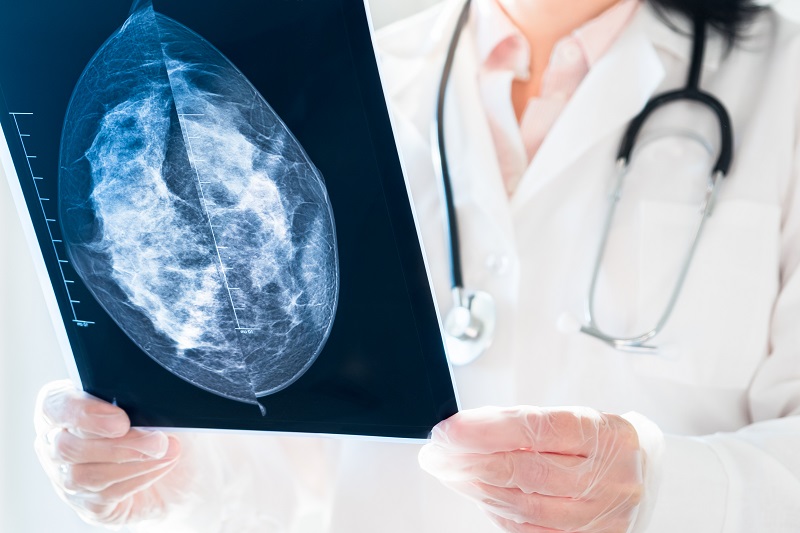Clinical Contributors to this story:
Renee Armour, M.D.
Roshani Patel, M.D.
It’s not unusual to get called back for follow-up after a screening mammogram. It’s even more likely after a first mammogram, since there are no previous films to compare your images to. Follow-ups are also needed more frequently in pre-menopausal women, who tend to have denser breasts.
Of course, it can be frightening to hear that you have an abnormal screening mammogram. Knowing what to expect can help ease your anxiety.
Why a Mammogram May Be Abnormal
“There are a lot of reasons someone might be called back for additional testing after a mammogram, and most of them are not cancer,” says Renee Armour, M.D., F.A.C.S., director of breast surgery at JFK University Medical Center. “Still, it’s completely understandable for women to feel worried when it happens.”
Adds Roshani Patel, M.D., medical director for breast surgery at Jersey Shore University Medical Center: “Nine times out of 10, there is no cancer found in a follow-up, but we can’t just assume there is nothing there if there is an abnormal mammogram. It’s important to get further testing.”
Some reasons for an abnormal mammogram that are not breast cancer include:
Suspicious areas due to the way the breast tissue is compressed during the mammogram
Pictures that aren’t clear or miss an area of the breast
Cysts or fibroadenomas, which are almost always benign
Benign calcifications (although some calcifications are cancerous)
What Happens After an Abnormal Mammogram?
If you have an abnormal screening mammogram, the next step is a diagnostic mammogram. A diagnostic mammogram is similar to a screening mammogram, but more images will be taken, and greater compression may be applied. Dr. Patel describes diagnostic mammograms as “taking a magnifying glass to the mammogram.”
An ultrasound, which is a non-invasive test in which a wand that emits sound waves is moved over the breast, is often done in the same visit as or instead of the diagnostic mammogram. Occasionally, a breast MRI may be recommended.
You will not have to wait long for the results of the follow-up tests—in many cases, the radiologist will give you the results before you leave the imaging center.
“Some lesions are markers for future breast cancer, and there are others that are not cancerous but look similar to cancerous ones,” says Dr. Armour. “That’s another reason it’s important to evaluate any suspicious findings. You’ll want information that can help you and your doctor make decisions.”
Staying on Top of Your Breast Health
Most of the time, you will get the reassuring news that there’s nothing of concern and you can return to your usual mammogram schedule. Sometimes, you may be asked to return for a repeat mammogram in six months to make sure nothing changes.
If a biopsy is needed, you will be referred to a breast surgeon. Your appointment will be fast-tracked for another visit, so that you can get peace of mind faster.
“Most of the time everything is fine, but if it’s not, I would rather catch cancer early than later, so the follow-up is still very important,” says Dr. Patel. “As my mother would say, ‘One stitch in time saves nine.’”
Next Steps & Resources:
Meet our sources: Roshani Patel, M.D., and Renee Armour, M.D., F.A.C.S. To make an appointment with Dr. Patel, Dr. Armour or a breast specialist near you, call 800-822-8905 or visit our website.
Schedule a mammogram near you today
The material provided through HealthU is intended to be used as general information only and should not replace the advice of your physician. Always consult your physician for individual care.
SOURCE; https://www.hackensackmeridianhealth.org/







